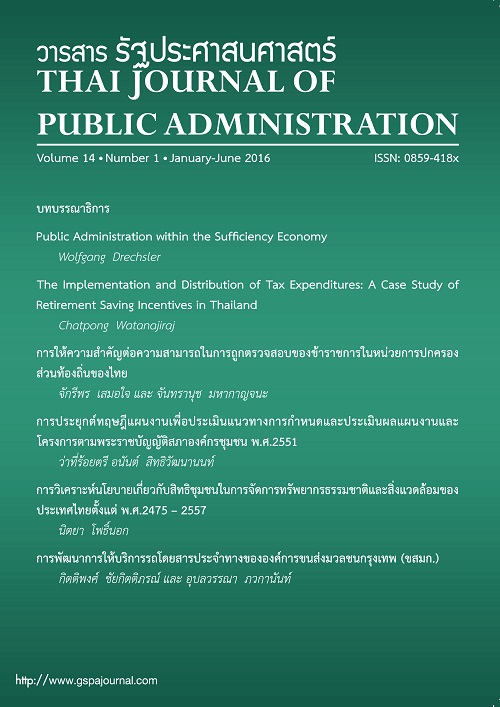Application of Program Theory to Assess Guidelines for Determination and Evaluation of Programs and Projects in Accordance with the Community Organization Council Act B.E. 2551
Keywords:
Community Organization Council Act B.E.2551, program theory, public policyAbstract
In this research, the application of program theory by Rossi, Freeman, and Lipsey (1999) to the analysis of the substance of the Community Organization Council (COC) Act B.E. 2551 (C.E. 2008) shows that the Act consists of two major components: (1) the substance of the Act in accordance with an organization plan concept; and (2) the substance of the Act in accordance with a service utilization plan concept. These two components aim to build the substance of the COC Act B.E. 2551 in accordance with an impact theory. The expected results would contain two major elements with domino effects as follows: (1) the substance of COC Act B.E. 2551 in accordance with an output concept; and (2) the substance of COC Act B.E. 2551 in accordance with an outcome concept.
Furthermore, the results of the research should improve the performance of the substance of the Act as the results are derived from an analysis employing program theory application to assess guidelines for determining and evaluating the programs and projects of the COC. Also, the guidelines of this research paper may prove beneficial in terms of the development of the COC.



